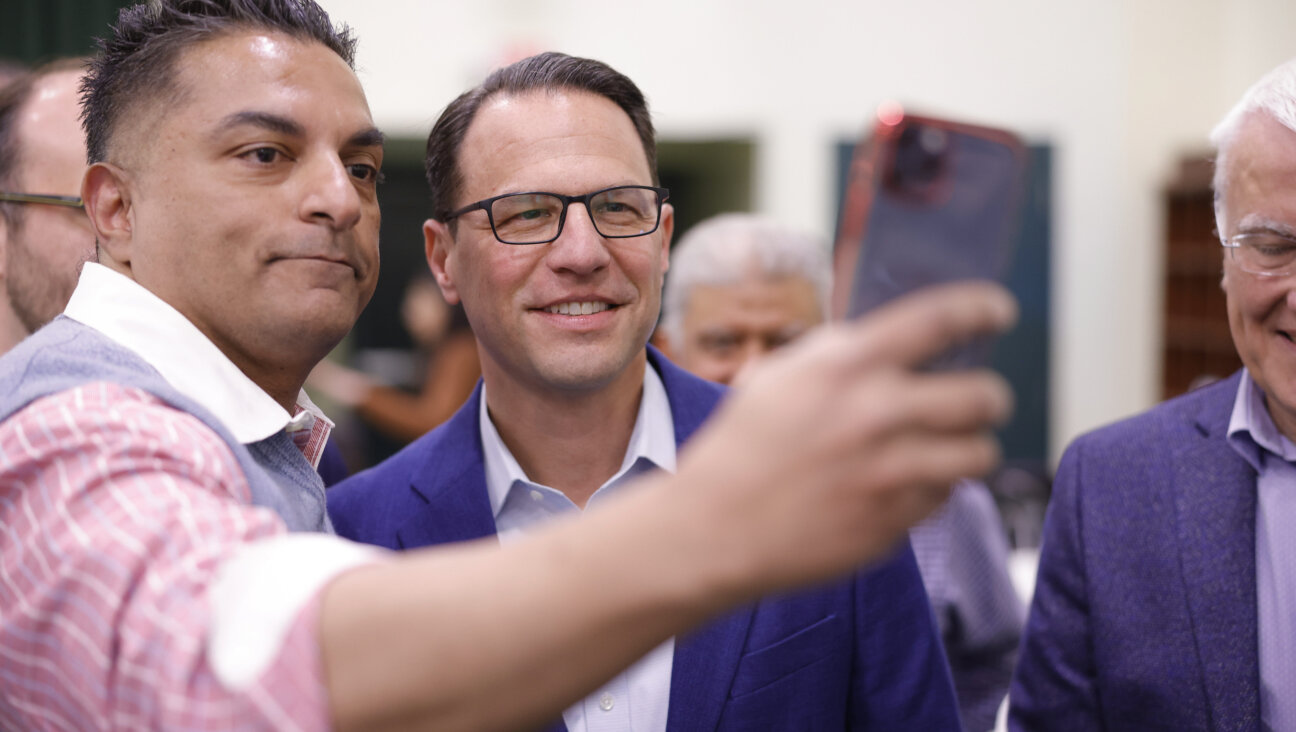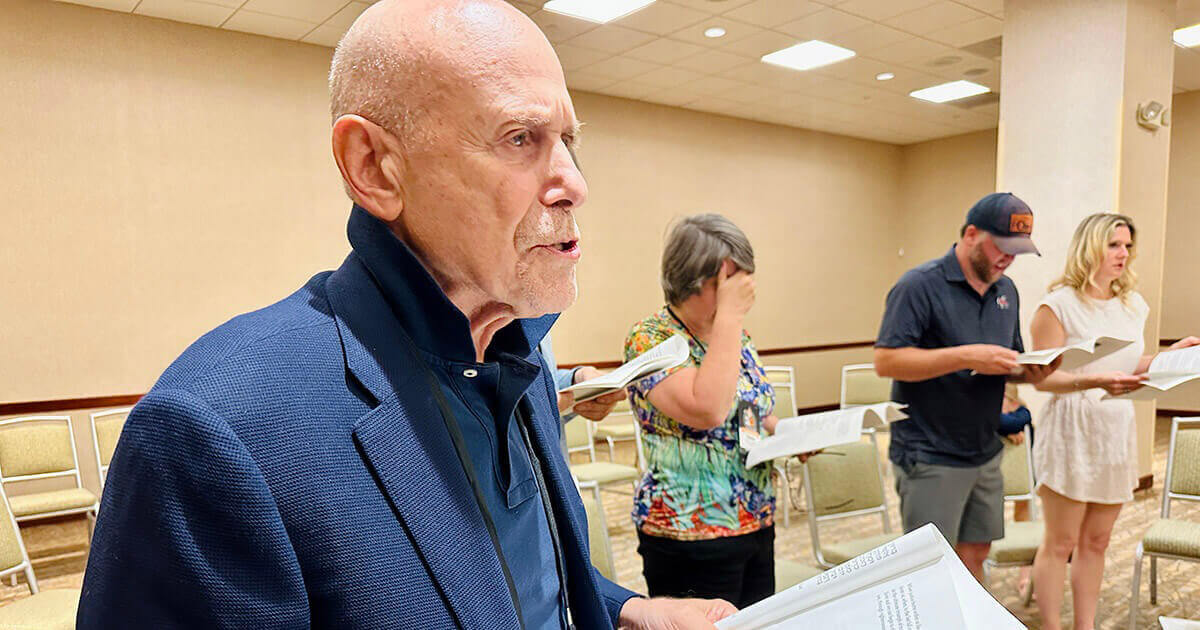University of San Francisco email accused of spreading ‘delegitimization’ of Israel

University of San Francisco
As the Israel-Hamas conflict was raging last month, a program assistant at the University of San Francisco forwarded an email to a group of students in the School of Education promoting a Palestinian protest taking place the following day.
The email, sent to students in the International and Multicultural Education master’s program, included details about the protest, which filled the streets in San Francisco’s Mission District on May 15, an annual day of grievance for Palestinians known as the Nakba.
The original email from the San Francisco Bay Area Palestine Action Network was forwarded along with its subject line, “Tomorrow: Solidarity with Palestine,” and described Israel’s recent actions in Jerusalem as “settler-colonialism” and condemned the Jewish state for “violent and illegal attempts to forcibly expel” Palestinians from their homes.
It marks the second time since the start of the violence in Israel and Gaza that the university’s official channels have been used to advocate for the Palestinian cause and raises questions about how an educational institution should be navigating the conflict.
On May 19, the university took down an Instagram page associated with another School of Education master’s program after a student running the account reposted tweets that USF President Paul J. Fitzgerald publicly condemned, calling the messages “disturbing, violent, and perceived as anti-Semitic.”
“Social accounts published on official university platforms are subject to USF community standards and alignment with the university’s values,” the president said in a community-wide message. Although he was aware of the IME email at the time, his public remarks referenced only the Instagram posts.
Melissa Schneider, a Jewish student in the IME program who received the forwarded email, filed a bias incident report with the university naming the program assistant, charging that the content promoted “half-truths and outright lies to disparage the only Jewish-majority country in the world,” according to a copy of the report provided to J.
“I was very disappointed,” Schneider, 44, told J. “In this very complex international conflict, my school had taken a side.”
Schneider said she was especially concerned over the email’s references to #Nakba73 — the Arabic word for “catastrophe” that Palestinians use to describe Israel’s founding. She said the forwarded email was promoting an event that declared “Israel’s existence as illegitimate.”
“I think there’s a difference between calling for solidarity with Palestinians and referring to May 15 as Nakba73, a term that was used twice in the USF email,” Schneider wrote to J. “The delegitimization of Israel is what is contemptible here, not solidarity with Palestinians.”
Schneider is one of about 150 students in the IME program.
She addressed her concerns in an email to Fitzgerald, saying “I will not continue my studies at an institution that blindly takes a side in an international conflict — notably the side that happens to malign the largest Jewish community in the world.” She included examples of antisemitic incidents that have occurred since the Israel-Hamas conflict, even after the May 20 cease-fire.
Fitzgerald replied that the program assistant who had sent the email to the student listserv “made a mistake in passing along this message.… The way towards such a hopeful future is through non-violence and dialogue. For this reason, I oppose the BDS movement,” the boycott, divestment and sanctions movement against Israel.
Fitzgerald also shared Schneider’s concerns with Shabnam Koirala-Azad, dean of the School of Education, who in an email exchange told Schneider she was “sorry for the distress the message caused” and proposed that the two of them meet virtually. “Your perspective is important to me,” Koirala-Azad wrote.
“We will not be sharing anything that is not of immediate relevance to students in their studies,” the dean wrote. “We have also created more systems of accountability to which messages cannot be sent out based upon the request of any one person and their personal views.”
Schneider asked whether the dean herself would be publicizing the new policies to the community “to ensure that the IME listserv won’t be used to promote a one-sided political agenda.” She had not received a response as of June 2.
Despite these communications, Schneider said she is “reconsidering” her “place” at USF.
“This is a School of Education sending out something biased and inflammatory and then not taking full responsibility for doing so,” she told J. “When students see this coming from their schools, they think these are the values being promoted. To send this out, and to apologize privately to me but to have no public acknowledgement, is pretty disappointing.”
Kellie Samson, a university spokesperson, responding to a J. inquiry on June 1, confirmed that the “USF School of Education has revised their policies regarding the use of department email lists. The lists will now only be used to share information regarding departmental and school- or university-sponsored events and curriculum. The lists will no longer be used to promote external events or activities of any kind, as was the case here.
“Once we have clarified and articulated our new policies regarding the use of departmental email lists, we will notify the department. At this point, the Dean has personally met with, or communicated with, all individuals involved in this incident.”
The IME program is advertised as a way for students to understand “inequalities based on race, class, gender, and nationality” to promote “scholarship and research based on principles of equity and social justice.”
In a separate show of support for the Palestinian cause, a statement was released on May 25 signed by 48 USF faculty and staff and 35 students. Five of the faculty signatories are IME professors and associate professors.
“We, as members of the University of San Francisco community, express our heartbreak and outrage at the recent acts of extreme violence in Israel and Palestine,” the statement read. “We recognize that firing projectiles and dropping bombs that primarily threaten civilians is a war crime whether done by Palestinians or Israelis. We also recognize the gross asymmetry in power between Israel, the region’s most powerful armed forces, and Palestinians living under siege and occupation. We believe that all nations have the right to self-defense, but that no one has the right to attack civilian targets.”
The statement noted that the “root of the conflict” is because of the “occupation, displacement, and ongoing oppression of Palestinians by Israel” and called for U.S. military aid to Israel to be halted.
This story originally appeared in Jweekly.com. Reposted with permission.
A message from our editor-in-chief Jodi Rudoren

We're building on 127 years of independent journalism to help you develop deeper connections to what it means to be Jewish today.
With so much at stake for the Jewish people right now — war, rising antisemitism, a high-stakes U.S. presidential election — American Jews depend on the Forward's perspective, integrity and courage.
— Jodi Rudoren, Editor-in-Chief






















